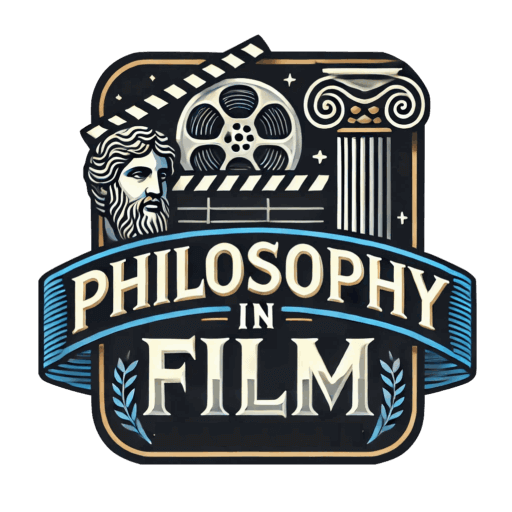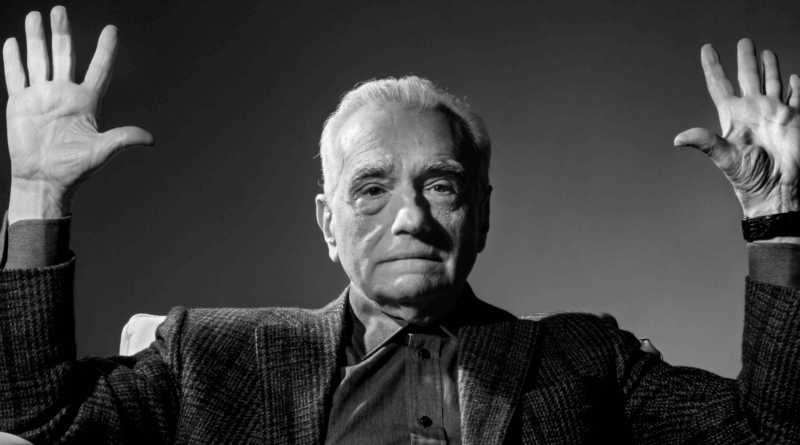Book Review: The Philosophy of Martin Scorsese
Martin Scorsese is an Academy Award-winning director and legendary filmmaker noted for his profound, character-driven stories and fascinating explorations of moral and existential issues. His works frequently explore the darker elements of human nature, crime, and redemption, demonstrating his passion for complex individuals and moral gray areas.
Scorsese is renowned for films like Goodfellas (1990), which explores the cost of navigating life in the mafia; Casino (1995), which features the rise and fall of a casino manager as he and his cohorts play black jack and dispute over power and money; as well as The Irishman (2019), which looks at loyalty, age, and regret in the world of organized crime.
Martin Scorsese’s personal ideologies are strongly interwoven in his films, which tackle complex ethical concerns. These challenge the audience to confront moral dilemmas presented by defective characters and constantly blur the line between right and wrong.
The Philosophy of Martin Scorsese, edited by Mark T. Conard, analyzes this thematic richness from a critical and philosophical perspective. The book covers nearly all of Scorsese’s films, and Conard’s work provides a better understanding of how Scorsese employs cinema to investigate the human condition.
The Philosophy of Martin Scorsese — An Overview
The Philosophy of Martin Scorsese is a collection of essays that delve into the deeper philosophical concerns and themes in Scorsese’s films. The book is part of The University Press of Kentucky’s Philosophy of Popular Culture series, which combines high-level philosophical investigation and popular culture.
Though cinema is widely regarded as an art form capable of exploring highly complex philosophical topics, Conard’s book provides thorough and approachable philosophical analysis, frequently using Scorsese’s films as “springboards” for analyzing pre-existing concepts and schools of thought. This framework is organized into three thematic sections: authenticity, flourishing, and egoism; rationality, criminality, and emotions; and vision, salvation, and transcendence.
Exploring Crime, Violence, and Ethics
Scorsese’s films about crime and violence are among his most well-known, and for this reason, The Philosophy of Martin Scorsese focuses heavily on the moral and philosophical foundations of these works. Several pieces in the anthology examine subjects like friendship, egoism, and vigilantism through the eyes of Scorsese’s criminal figures. For example, Steven M. Sanders’ essay “No Safe Haven: Casino, Friendship, and Egoism” concentrates on the film’s somber study of human connections rather than gaming business methods. Sanders depicts Ace and Nicky’s relationship as an egoistic friendship, highlighting the film’s neo-noir style.
Dean A. Kowalski’s essay “Goodfellas, Gyges, and the Good Life” also takes a philosophical approach to the film. The essay raises a familiar question: why live a morally good life? Kowalski employs Plato’s Republic and the myth of Gyges to investigate whether characters like Henry Hill, despite their illicit habits, can ever truly be happy. This investigation of unbalanced personalities and moral deterioration is crucial to how Scorsese portrays his crime-driven characters.
Aeon J. Skoble’s essay on Taxi Driver (1976) is one of the collection’s most notable pieces. Skoble investigates the ethical implications of vigilantism, examining Travis Bickle’s acts through the lens of John Locke’s political philosophy, while also utilizing comparisons with comic superheroes. This essay underlines Bickle’s ambivalence as a man caught between moral justification and fundamentally defective judgment, demonstrating the emotional depth and complexity of Scorsese’s confused characters.
Exploring Identity, Temptation, and the Human Psyche
While Scorsese is most commonly associated with violent crime dramas, his films also examine identity, temptation, and the human mind in more subtle ways. In The Age of Innocence (1993), Scorsese departs from the world of gangsters to explore the strict social norms of upper-class New York in the late nineteenth century.
Deborah Knight’s study, “The Age of Innocence: Social Semiotics, Desire, and Constraint,” examines how Scorsese utilizes film to highlight the crushing emotional and moral shackles society puts on the characters. Knight claims that through the film’s rich narrative and characterization, Scorsese expertly recreates the social conventions that control his characters’ lives.
This category of Martin Scorcece’s unique repertoire also includes an altogether different film, The King of Comedy (1983), which explores personal identity and societal expectations. Richard Greene’s essay on the film examines the irrationality of the lead character, Rupert Pupkin. Pupkin’s misguided pursuit of popularity is used to challenge rationality and self-worth. These themes run through many of Scorsese’s works, which deal with characters seeking recognition in a world that doesn’t appear to recognize them.
Religious Themes and Spiritual Struggles
Religion and spirituality are common themes in Scorsese’s films, often intertwined with his characters’ psychological conflicts. In The Last Temptation of Christ (1988), for example, Scorsese examines Christ’s dual nature as divine and human, battling temptation and suffering.
Karen D. Hoffman’s essay, “The Last Temptation of Christ and Bringing Out the Dead: Scorsese’s Reluctant Saviours,” studies how Scorsese’s portrayal of Jesus matches the problems of other characters in his films, including Frank Pierce in Bringing Out the Dead (1999).
Both characters struggle with the weight of salvation and the conflict between personal pleasures and moral obligations. The Philosophy of Martin Scorsese, in its entirety, highlights how these religious themes extend beyond overtly spiritual films. For example, Paul A. Cantor’s essay on The Aviator (2004) connects Howard Hughes’ relentless ambition to libertarian philosophy, suggesting that Hughes’ entrepreneurial spirit reflects Scorsese’s interest in individualism and freedom. Cantor’s argument that The Aviator celebrates American entrepreneurialism connects Scorsese’s storytelling with more profound philosophical ideas about the relationship between the self and larger economic and societal forces.
The Role of Madness in Scorsese’s Films
Another frequent theme in Scorsese’s films is “madness” and how it affects the lives of his characters. In his essay on Taxi Driver, Jerold J. Abrams believes that Travis Bickle is a Nietzschean madman who transcends society’s moral constraints. Abrams follows the concept of the maniac through other Scorsese films, such as Cape Fear (1991), The Last Temptation of Christ, and Bringing Out the Dead.
In these films, Scorsese’s protagonists embody both destructive and constructive impulses. They frequently contend with internal lunacy that alienates them from society while propelling them toward a greater understanding of their nature. Jennifer L. McMahon’s article on After Hours (1985) compares the insanity of the film’s plot to Jean-Paul Sartre’s “Nausea and No Exit,” claiming that Scorsese employs bizarre settings to underscore his characters’ existential struggles. McMahon even claims that Scorsese’s absurdist comedies are therapeutic works, allowing spectators to reflect on their own experiences through the prism of dark humor.
The Philosophy of Martin Scorcese – A Rich Analysis of the Human Condition
The Philosophy of Martin Scorsese collects some of the most in-depth studies on Scorcese’s works and the philosophical issues that arise throughout. While some essays use Scorsese’s films to illustrate pre-existing philosophical themes, others look into his films’ cinematic and narrative depth, providing new insights into how Scorsese addresses issues of morality, identity, and the human condition.
The book skillfully crosses the divide between philosophy and pop culture, demonstrating how a filmmaker like Scorsese can stimulate thought through intricate storytelling and character development — without sacrificing entertainment value. Whether discussing films about crime, identity, or spirituality, The Philosophy of Martin Scorsese encourages readers to question the deeper implications and ideologies of one of America’s most beloved and celebrated directors.
If you’d like to read more film essays like this one, check out the Philosophy in Film Homepage!

